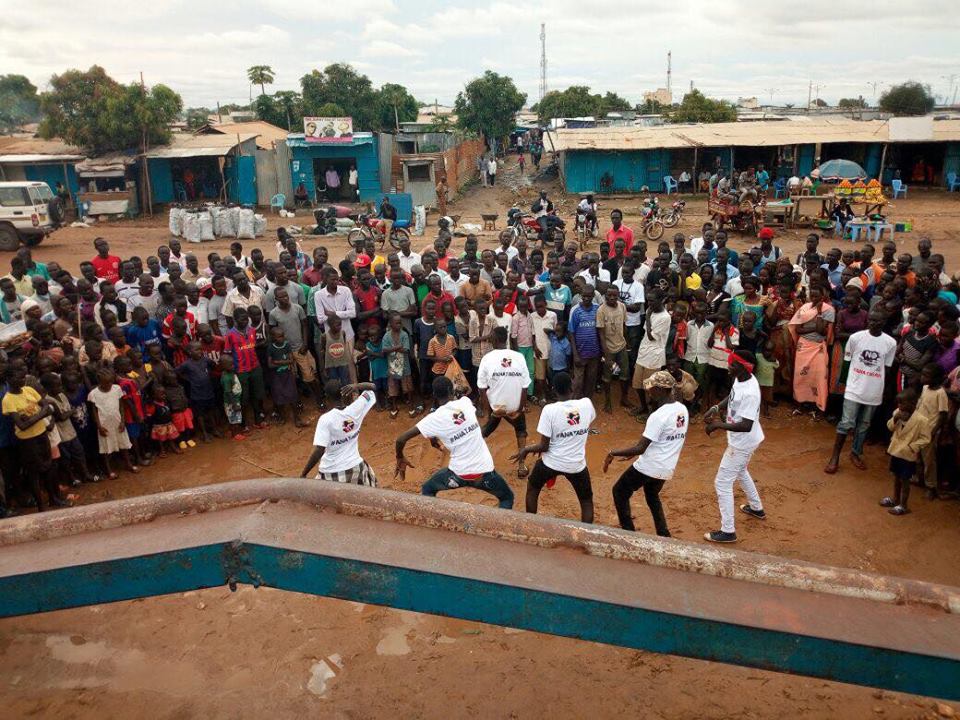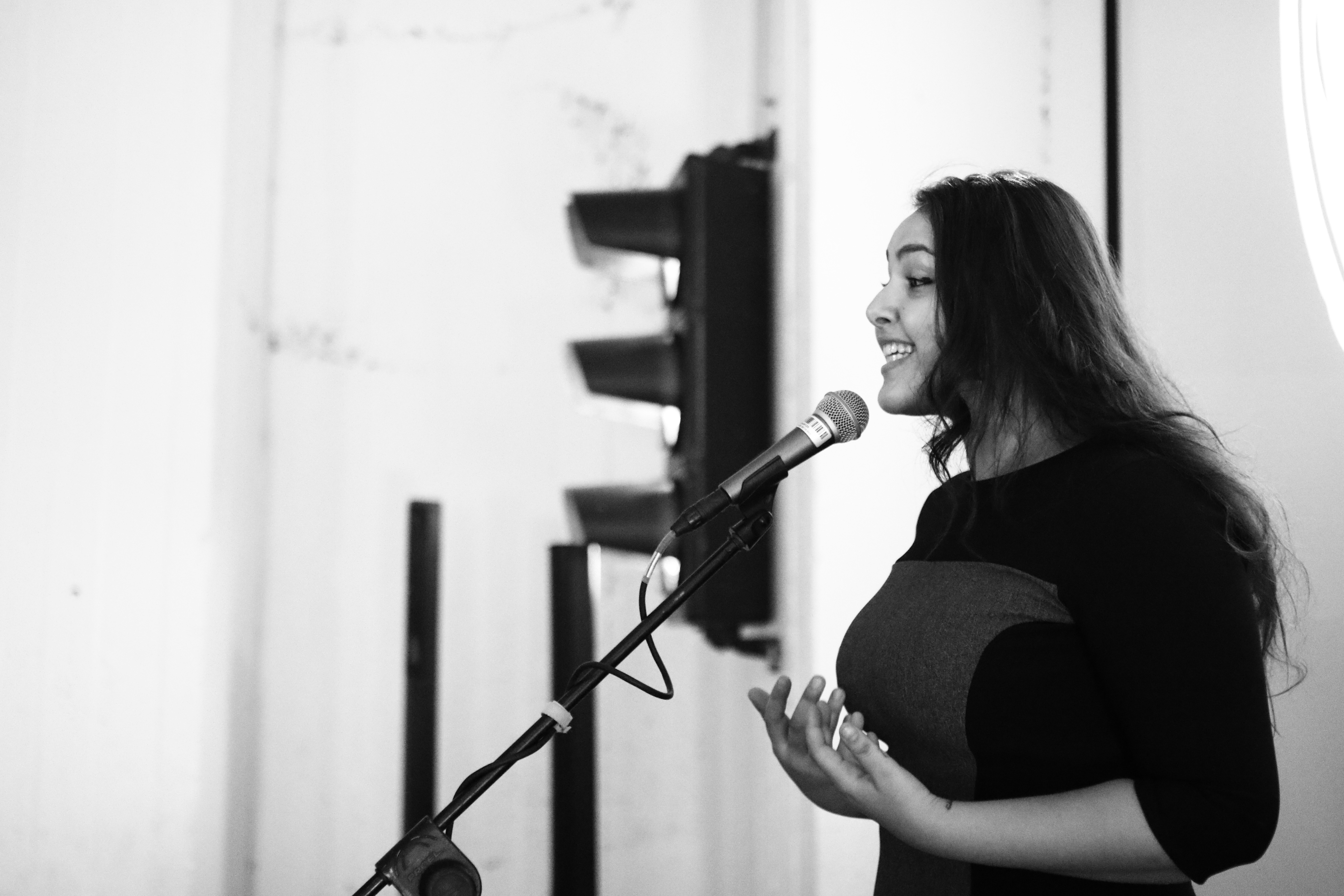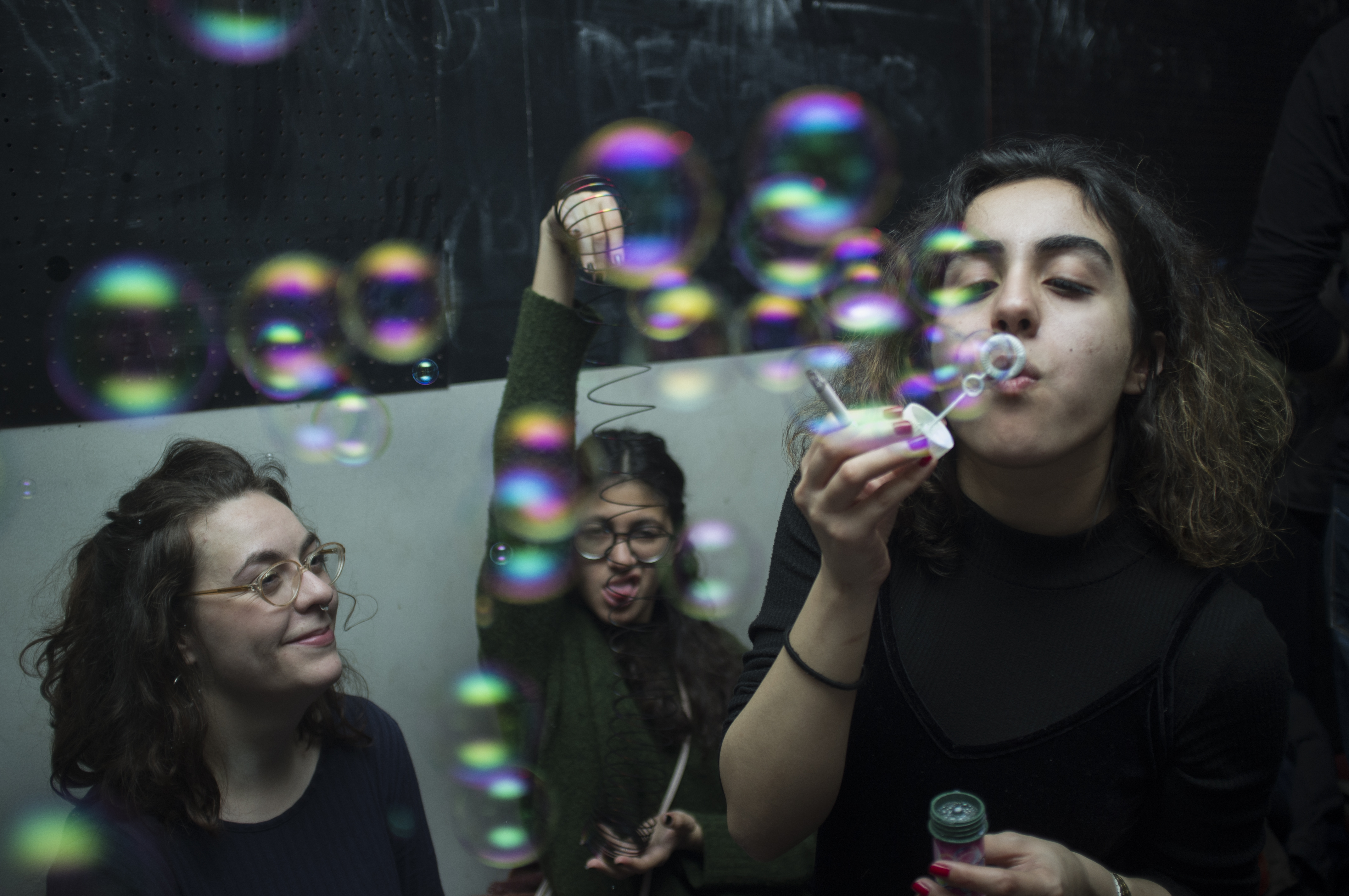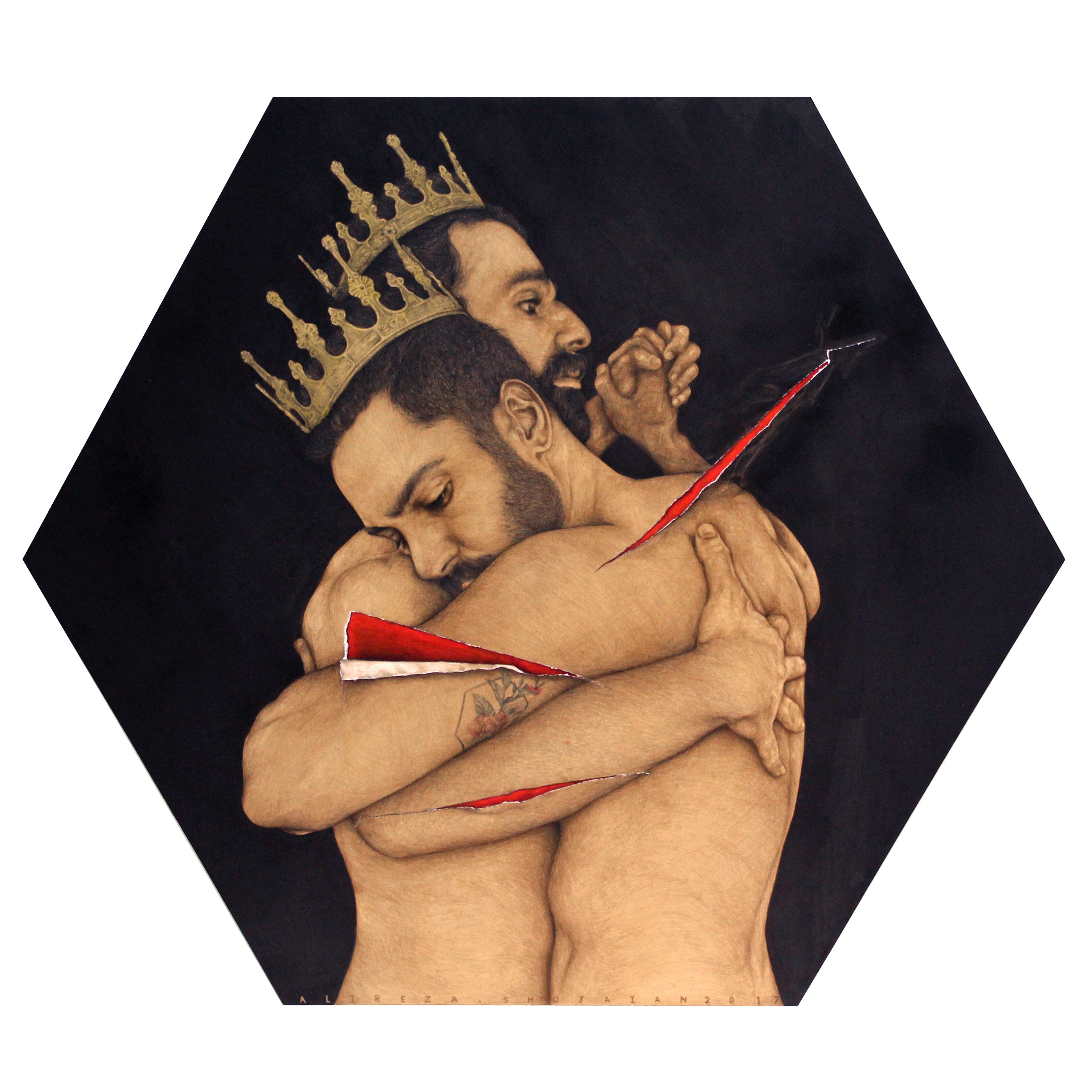Artivism
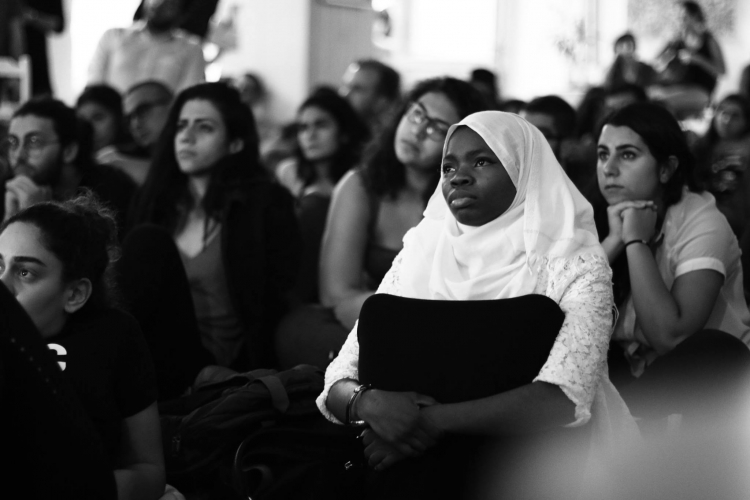
Everyone deals with pain and adversity in their own ways, but for many art is an essential outlet. In Western cities like Paris, art is available to us at all times, in all forms: almost anyone can be a spectator—or take part in—comedy shows, visual arts exhibitions, open mic nights, jams, poetry nights, or performance art shows. If you’re looking, you will be able to find it. In the Western world today, artists and creators have close to absolute freedom in the act of making their art, and sharing it. There are endless reasons and motivations for creating and joining artistic communities or movements; from alleviating pain, to making an argument, provoking thought or creating connections between people.
Historically, art has been a great means to share the human experience, and has now become a pillar of many societies in the developed world. Though there are still taboos and social conflicts in developed countries, the situation is different in countries that are going through crises or conflicts, whether social or political. In these places, where there is less freedom and stability, but also much more repression and censorship, art and its subcultures take on different meanings, and face more challenging fights. In South Sudan, a small group of creatives based in Juba, including Meen Mabior, a young political activist, have taken it upon themselves to create Ana Taban, which they describe as “a campaign and a movement to support the tired people of South Sudan.”
The country, which gained independence from Sudan in 2011, has been suffering through civil war since 2013, and because the South Sudanese people have been victims of ethnic violence, many people have been internally displaced. Additionally, with the collapse of the economy and the country officially declaring famine, the country received the highest score on the Fragile States Index in 2017. Though a number of peace agreements have been signed since the start of the war, they are constantly being violated, with violent outbursts still very much present. According to Mabior, the country is extremely polarized, and the people have been stripped of their agency and rights. In Juba Arabic, the phrase “Ana Taban” means “I am tired.” The group of South Sudanese activists and artists expresses their fundamental values upon which the movement was founded as solidarity, courage, integrity, citizenship, non-violence and political neutrality.
Image credit: Facebook/AnaTaban
Ana Taban was created in 2016 in response to the war plaguing the country. Through street theater, graffiti, sculpture, music and poetry, and traditional dance, the campaign aims to provoke public discussions of current events and how they affect the ordinary South Sudanese citizen. In an interview with the Guardian, Ana Taban said, “we are tired of war and all the suffering that comes with it. We are tired of just sitting by and seeing our country burn. We are tired of having a country with vast natural resources yet a crashing economy. We are tired of the fact that we have a beautiful cultural diversity that is destroyed by tribal animosity.” With their movement, AnaTaban wants to create a platform for the regular South Sudanese citizens to voice their thoughts and feelings, create a community, and raise awareness on the issues affecting them all deeply.
The first project that Ana Taban took on was one of reconciliation. The group attempted to restore community after the signing of the peace agreement in 2015 by going around Juba and recruiting people to join the initiative. They trained people to be leaders in the community, in order to work with a polarized, hopeless population. The collective primarily used art to impart a sense of togetherness. The group said, “We went around Juba and started doing public events. We would go to the neighborhoods, and we would do poetry or spoken word, we would do music, or theater, and comedy, and then we would have an interactive session and ask the audience what they actually want, and how they want the country to reconcile.” As part of this reconciliation project, the group distributed white handkerchiefs around the city on the day of the peace agreement signing with the message, “we are sorry for what we have done to each other,” in an effort to “emphasize that idea that actually we are also the perpetrators of this war, and let’s say what we have done to each other,” as Mabior explains. Unfortunately, he shares that no real change occurred after the peace agreement, with violent outbursts still happening around the country. This prompted the collective to start a campaign called BloodShedFree2017 to promote peace and stop hostilities.
Through their multiple campaigns, and many free events (sometimes attended by as many as 5,000 people), Ana Taban is fighting to make the country a better place, where all can live in peace and harmony. When asked about his personal motivations, Mabior says, “Generations of people have been born in war, and have grown up in war. Now that we have our country, we need a vision for how we really want to manage that country. If we have a vision of a country in peace and how we want to manage it, why don’t we do it? Personally I feel like I have a responsibility to do my part in fixing this country.” By using art in their movement, AnaTaban is helping many cope with the current situation in South Sudan. “At the moment the important thing is restoring hope in people who have been in war for generations and who have lost hope. We want to show them that we can have a brighter future.”
Mabior emphasizes that art is a great way to bring about change in the way people feel and think about the current situation, as “it is a universal language, and you don’t need to say much to convey what you want to say—it has that power, and captures that emotion.” In giving people a space to speak up, in a country where there is essentially no freedom of expression, Ana Taban is starting a conversation, showing people that they are the ones who should be talking. In a place like Juba, art takes on a very different meaning than in Paris. There, it is used as a means to engage people in very serious and sometimes challenging conversations, and gives power to the people so that they can finally reach peace.
Beyond conflict zones themselves, in many places it is still very difficult and sometimes dangerous to express ideas that have not yet been accepted by society. Though not currently in the midst of conflict, Lebanon, which borders Syria and Israel, has seen its fair share of conflicts and crises since the end of the French occupation in 1943. Between the 1975-1990 Civil War and Syrian and Israeli occupations, jihadist terrorist attacks until as recently as 2011, and its close proximity to the Syrian Civil War, the country has experienced decades of conflict.
Image credit: Facebook/The Poetry Pot
While Lebanon is one of the more free Middle-Eastern countries when it comes to basic human rights such as freedom of speech and expression, repression is still very much present, especially for artists with somewhat controversial work. The Virtual Museum of Censorship, an online database created by MARCH, an NGO based in Lebanon, contains lists of works of art that have been censored since the 1940s: films, books, music, visual arts, TV, press, events and theater— all for political or religious reasons. Ranging from sexually explicit content to heavy metal, Israel, and more recently “LGBTQ art and events,” censorship and repression still reign strong in Lebanon.
Underground movements and collectives promoting and facilitating artistic ways of expression have started growing faster for nearly a decade, according to two art collective founders based in Beirut, Lebanon. Dayna Ash founded a collective called “Haven for Artists,” an NGO in Beirut, six years ago. She describes the group’s role as facilitating and showcasing artists both in the Middle East and internationally, “by creating non-confrontational spaces that are accepting and open.”
he collective hosts and organizes large events and exhibitions—from 5 to 12 each year—to try and create cultural networks and bridges between the Middle East, Europe and the Western world in general. Ash says, “Sooner or later, we’ll be able to expose people to different cultures by integrating them to different cultures instead of giving them textbooks.” With their initiative, Haven attempts to advance the Middle East and Lebanon in the art world so that artists and people can have the same amounts of freedom to express themselves.
Through their space, community and projects like the “International Exchange Program,” Haven encourages artists to work together to share ideas, thoughts and living spaces in order to create an entirely free and collaborative space. So far, the collective has 27 international artists, and from 280 to 500 artists from all over the Middle East. Haven’s latest event, Radical, was a ten-day event hosting drag queens and visual and performance artists from Iran, Pakistan, London and Bangladesh. The event, held at the French Institute in Beirut, was, as Ash explains: “about bringing freedom of speech in all its forms, and a radical form of it.” In “Radical,” which she curated, they made sure there would be absolutely no censorship. She shares, “Every single meeting we had, I would say ‘go further, do what you have to do in order to express yourself!’ because no matter how much artists believe they are free, there’s always censorship, or a structure that condemns them for whatever it is that’s not accepted by society.”
According to her, it’s about finding loopholes and making sure to be smart about how they present their events, such as making sure that unless one actually attended the event, they would not know that Haven is breaking so many laws. When organizing Radical, the first event advocating for freedom of sexuality in Lebanon—which, according to Ash, is the greatest taboo of all—at the French Institute, they were protected by the French embassy, as it is technically French soil. “It’s just about how you can play the law rather than letting the law break you down.”
Image credit: Haven for Artists/Paul Hennebelle
Haven isn’t the only Lebanese-based artistic endeavor subverting the taboos surrounding queer art. Painter Alireza Shojaian creates emotional, realistic works featuring the male form and homosexual themes that represent immense strides in giving a voice to the oppressed. After spending a few years at university in Teheran, the Iranian-born artist relocated to Beirut to make his art and share its message freely. Of his decision, he says, “For me, it’s about freedom. It’s about finally being able to share what I made not knowing if I would ever be able to show.”
In Lebanon, despite there still being some repression, Shojaian has found his place as an artist to not only express himself, but to support his fellow citizens. He says, “I receive messages from people back in Iran who tell me: ‘you talk, we are voiceless here.’ I also receive comments from young people in Lebanon who tell me: ‘we are happy that you are doing your art, we are happy to have you in Lebanon and to have you here in Beirut’, and that’s the best thing I can receive.”
Shojaian considers that he has a responsibility as an artist, to make change by starting conversations about the way we think and behave about certain social issues, but also to preserve the countless stories of repression, oppression, and injustice for the future. “I’m talking about human suffering, and it’s not just a personal story, it’s about all people like me, and it doesn’t matter if you are in Beirut or in Teheran, everywhere is the same story. It’s not about freedom or government, it’s about how people think about it, and what society does to it.” Majd Shidiac, founder of spoken word poetry collective The Poetry Pot, had this idea in mind when creating his platform: “In Lebanon, we’re kind of in the middle of everything, and a victim to proxy wars as well, which is affecting our own politics and social struggles, and that has really pushed us to write about all of these things.” Founded in 2016, the Poetry Pot serves as a platform and community open to all who want to share and express themselves.
Having been on the spoken word scene for over five years, and following the desire to grow the performance arts community in Lebanon, Majd created the platform as a daughter project to previously existing collectives. He explains, “We do not have a higher purpose, a political struggle, an absolute belief, but we believe and support those who do.” He has accomplished this goal, as artists from Palestine, Jordan, Syria and other neighboring countries now a part of the community. He says, “Currently, two of those countries are at war, which makes expression not only impossible, but even physical presence dangerous. As artists, the constant need for a platform to create, experience, and share is necessary wherever we go—and The Poetry Pot serves exactly that.”
"The Perfect Moment." Image credit: Alezira Shojaian
Though he emphasizes that there is always room to grow, he seems confident movements like Haven for Artists are reaching more and more people, while giving a free space for creation and expression to whomever wants it, including those who cannot exercise their freedom to express themselves at home. Majd shares, “we once had a Syrian poet perform a cynical poem about his relationship with his current Lebanese neighbor, which then evolved into a dark humored critique of the relationships between the Lebanese and the Syrians. We had another half-Syrian, half-Palestinian artist perform an apology for her hometown in Palestine because she felt the urge to fight for Syria. In those two examples, the crowd was able to connect deeply to the art, as it hits home for anyone who identifies as an Arab.”
Majd says the results are heartwarming: “People say things like ‘I never thought I would share what I did’, or ‘I never thought there would be a genuine group of people waiting for me to share what I have to say and making me feel safe enough.’ The feedback is concentrated around that feeling of community and mutual love.” According to Maysan Nasser, an AUP graduate and spoken word poet from Syria currently living in Lebanon, The Poetry Pot and Haven are the two most prominent artistic and expression platforms in Beirut. She says, “These platforms of expression play important roles in giving the people a cathartic space to speak and share. They offer many people a sense of belonging in an increasingly alienating world.”
Though these platforms and movements can seem quite similar to those we have in cities like Paris, rich with international exhibitions, alternative performance shows, or spoken word in dimly-lit bars—where the possibility of artistic expression and sharing can sometimes have virtually no effect—these artistic movements can serve a different purpose in diffcult contexts. Clear results might be difficult to quantify, but it seems certain that hosting a drag show defying Lebanese laws, opening stages to artists who face danger in expressing themselves in their home countries, or organizing events in attempts to give back hope and agency to a people afflicted by famine and war serves a very meaningful purpose, and possibly carries a different meaning.

